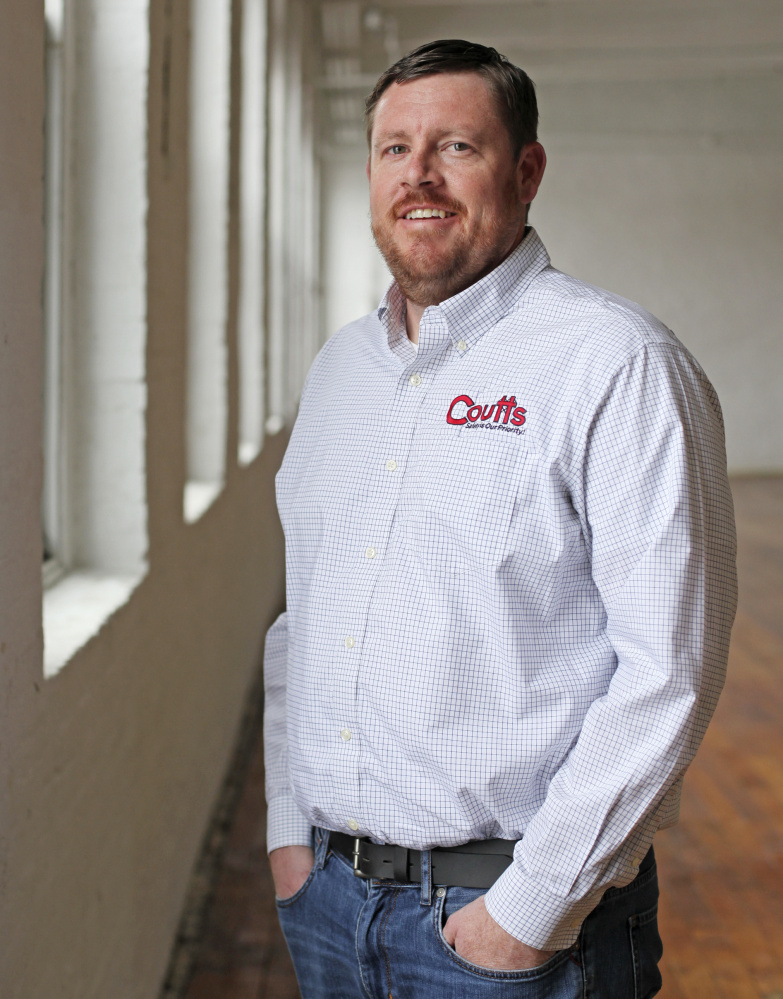Coutts Bros. is a 53-year-old Randolph construction company that has developed a specialty in inspecting and repairing electric lines. The company started small –”it was two brothers and a tractor,” said general manager Brad Stout – but now has 45 employees who work in New York and New England. Because electric supplies are tight, the company’s workers often work on live lines. Stout said the company is now stressing safety – and using drones in pursuit of that – because potential clients consider safety commitments when Coutts Bros. is bidding on a job. The company won Associated Builders and Contractors 2015 National Safety Merit Award in recognition of its efforts to improve safety for its workers.
Q: When did you start this effort to improve safety?
A: We launched it about three years ago to make safety a major part of what we do. We hired some key people, including a new safety director, and changed the way we trained people using a behavior-based process – looking at what we’re doing and how we’re doing it and correcting things before they become incidents.
Our entire industry is really shifting the focus to safety being the first priority. Previously, we were basically tracking our incidents and then making adjustments based on that.
Now we meet every Monday morning and we go through those near-misses to make sure everyone knows what happened and how we can make sure it never happens again.
Q: Given your line of work, safety must be a constant issue.
A: We work on energized lines and we maintain a safe distance and use tools that are safe. Our guys are very good at live line work. Our processes are detailed and planning for them is a commitment. But it’s the smaller things that you have to focus on, too – the slips, trips and falls that are dangerous. It’s always those simple things that come around to bite you. We use that in our planning.
Q: Are your clients putting an increased emphasis on your safety?
A: All owners, whether it’s utility companies or municipalities or the state, everyone has a focus on whether they employ a safe company. Associated Builders and Contractors (an industry group) is focused on safety. It’s more important to make sure our guys go home safe every day. That should be the focus of every owner and contractor.
Q: Do clients ask to see your safety records when you’re bidding on a job?
A: It’s part of the review for every proposal we send out. They want your safety record as well as the safety plan for the project you’re bidding on. It’s not acceptable to allow people to be hurt on your job site. There was a time when, in the construction industry, fatalities were built into what you did. Now the whole industry is focused on making sure our guys go home safe. Not many people realize how much safer these places are to work.
Q: Do you think you’re ahead of the curve on safety?
A: I would say we’re ahead of the curve. We got that national safety award and that went to only 16 companies in the nation. It came down to a video call to speak to the people who gave out the award. They asked a lot about our philosophy and our management approach. We have an apprenticeship program and we have UAS (unmanned aerial systems) in places where it’s inherently risky for people to get to.
Q: What’s your apprenticeship program?
A: It’s a program for line workers, where they can come in and we train them to be first-class line workers. It takes between three and five years and its approved by the Department of Veteran’s Affairs and the University of Maine. It’s been very successful. Almost 25 percent of our staff is veterans.
Q: What about the drones?
A: We call it UAS. There’s a negative connotation with “drones.” My dad called me that if I wasn’t paying attention, so we’re trying to stick with “UAS.” You can put all sorts of sensors on them, like thermal imaging and high-definition video. You can add sonar and radar.
We were working with a couple of owners of hydro stations where when you do inspections, it requires people to climb walls or get in a boat in hard running water. If we can do those inspections with a machine, it’s faster and safer, and the information you gather is often more accurate.
Edward D. Murphy can be contacted at 791-6465 or at:
emurphy@pressherald.com
Send questions/comments to the editors.



